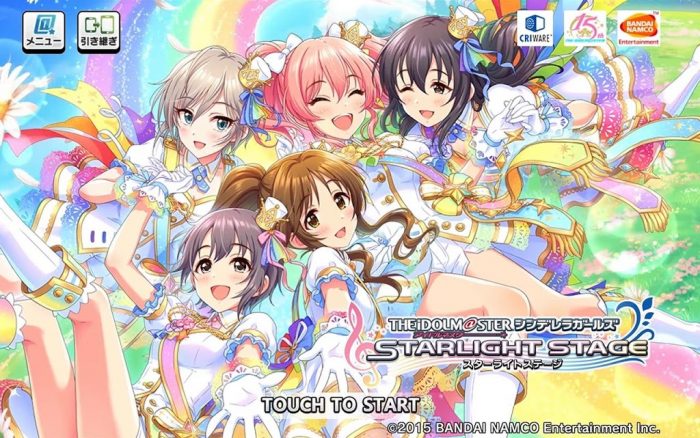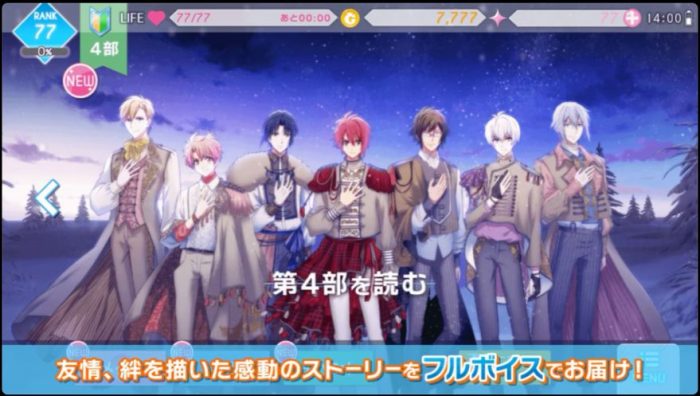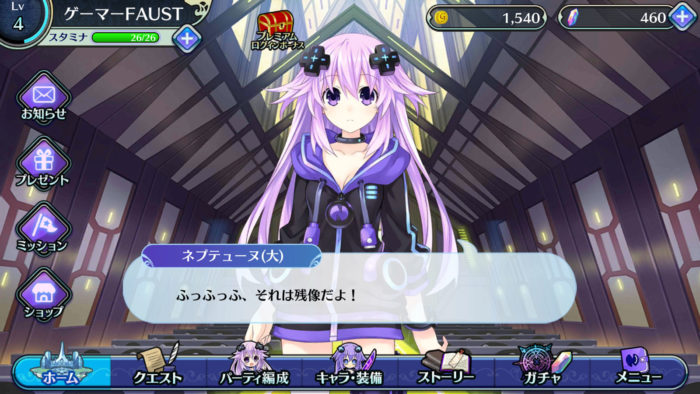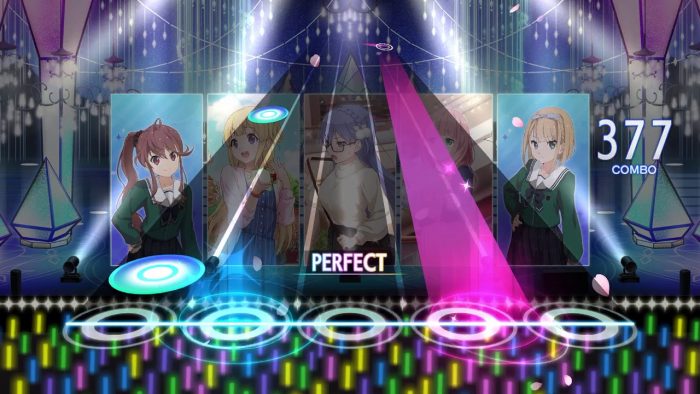GL stands for Global Language Version
Japanese smartphone and video games are awesome to play and to hang out with. However, some of them are not available or not playable at all if you live outside Japan. Basically, if you are truly a gamer of various video game consoles like PS5, Switch, or PC, then you have to play various video games and the smartphone ones of different genres from various regions or countries. And that includes Japan, in which about 50-60% of video game titles are indeed missing from your video games library. That excludes the imported video games, or any video games from Japan that were localized and translated in the west, or at any English-speaking countries.
Aside from having those Japan-only video and smartphone game titles not available in your region, you have to use a sort of VPN (virtual private network) app or program in order to bypass the Japan-only region locking access. Though only Japan-exclusive, some people are trying to get in to the game by means of using those VPN apps and programs. But then, how about those Japanese folks in Japan who were about to travel to a different country, and they can’t even access their own game due to the fact that the game is only playable in Japan? Basically, it’s the end of their continuous daily login streak if that happens.
Right now, in this post topic, we are going to list down the five (5) known smartphone and online Japanese video games which were indeed popular, but were never released outside Japan. There are still lots of them, but here are some of them so that you can have an idea. Please read below to continue!
5 Japan Video/Smartphone Games that Never Got a Global Version Release
1. The Idolm@ster Series

This idol-themed smartphone game by Bandai Namco is indeed popular in Japan. Aside from its same line popularity with LoveLive! Series, Uta no Prince-sama, and some other idol-themed series like 22/7, there was never a single Global Version release of this game ever released. The Idolm@ster Series is absolutely the longest running idol-themed video game series since 2005, with its first video game released.
Same goes with the Million Live! game, also it is only locked in Japan region. Most people play it, even if they are outside Japan, and they used VPN programs or apps in order to access and login into the game.
There are more than 15 The Idolm@ster video games ever released since then, and that includes the exclusive ones that appeared on the Microsoft Xbox and Sony PlayStation console systems. Also, included along with the 15+ video games released are the spinoffs, known as the SideM (featuring male and Bishonen character versions).
2. Kantai Collection

Do you know this game, ever since before the other related games like Azur Lane existed? This browser-based game has been developed by its related companies, and published by the big-time business website, DMM.com.
Kantai Collection, or often shortened as KanColle is a browser-based online video game, which features battleships and other fleet war machines (including war planes) — mostly the ones that are used at the time during the World War II era. However, there are enemies that you can encounter, and they are mostly monster ships or aliens. These war machine fleet elements and other monster enemies are being anthropomorphized as Anime girl-like characters.
So far, this is the only Japanese online video game that has never gotten a Global Version release. While its TV Anime counterpart and some other of its Anime figures were released globally outside Japan, never once its browser-based video game has been ever released as a Global Version. And what’s adding up the issue is the use of the VPN, just in order for some people to break in and to play this game.
3. Idolish7

Idolish7 is also a popular smartphone game and Anime series. Somehow, it is more appealing to girls who play this game. So far, no known Global Version release of this game was announced, although it is now almost hitting in the charts of the top gaming apps in Japan.
4. Megamiracle Force

Related: Megamiracle Force: All-Star Game that Fans Wished
Megamiracle Force is an awesome All-Star game that I ever played a long time ago, most probably two years after I abandoned it. It features various characters from different video game and Anime series which were published under the Compile Heart label (i.e. Moero Chronicle, Date A Live, Fairy Fencer F). Of course, the Hyperdimension Neptunia Series shall be the hosting series in this game.
Fans, including me, are just wishing for a Global Version release of this game. However, although I would like to have that game to be localized and be released outside Japan, I am still very fearful that this game may be prone to censorship and other restricting stuffs, which can reduce the game’s full features. Otherwise, this game will never get a Global Version, after all.
5. 22/7: Ongaku no Jikan

It is a rhythm game based from the original 22/7 Anime series, which focuses more on idols. Aside from having their own music played and featured, they do have ‘cover’ versions of some songs coming from either J-Pop or Anisong genre. Overall, this game is for people who just not only love 22/7 Idol Group, but it is for those who love seeing their favorite songs to be played as cover songs.
This game has a potential of being released in a Global Version market. However, due to the fact that this game has a smaller population or player fanbase, it is uncertain that this game will get a Global Version, or never at all in the worst case.
Why no Global Version, even it’s Popular Outside Japan?
There are reasons why do Japanese video game companies never release their games overseas, even though its popular elsewhere in the world.
First, and mostly, they depend on the player base, or the amount of players who play with their smartphone or video game. If their player base has reached for more than 10 million players in Japan, or even outside of Japan (overseas), then it’s their time to increase and expand their marketing audience, or likewise making a Global Version of their game. To hint you, making a Global Version release of the game usually takes time, and it can even reach up to two years before they could even decide! Also, making a Global Version of the game is just like making an expansion, or branch, of a franchise business (i.e. McDonald’s). Understanding that concept, it is just basically needing an another investment of large money.
Second, before they could even export their smartphone game overseas, they should consider first the factors that can affect their game’s system and characters, as well as their terminologies, events, and some other aspects like their direct translations. Read below to know them!
- Themes of the game which can affect people of different ethnicity (i.e. indigenous people, tribes, or even people with social disorders).
- Setting and events of the game’s story line that has references (i.e. World War II references, black people discrimination, or any events that matches the actual worldwide incidents, such as the mass killings or massacres).
- Sexual innuendos and other obscene references (i.e. panty shots, little girls as slaves, or other LGBT scenes like boy-to-boy having intercourse).
These points above can reduce the game’s features, and they got removed first before they could even be exported! But then, those points above can drastically decrease its features, and the game can no longer be enjoyable when played. This is where the video game localization and censorship shall enter! It some cases, that smartphone game or video game shall never be exported to overseas at all. In short, that game is banned in that country due to censorship laws implemented by that country of exportation.
And finally, they do really depend on the income that they are receiving through with the in-app purchases (IAPs) that people do! Basically, without the money and support from fans, that game is likely to shutdown early, especially if it is reaching at least one year of its service. For some other games that are so popular, the video gaming companies are really rich. Not only they don’t release it worldwide, but they are using their ‘reserve’ money for their upcoming future projects. But then, basically, if they are not really using their hard-earned money, it is something what we call, ‘selfishness’. They are very greedy with money.
Conclusion and Other Reasons
I know there are many reasons why, aside from the ones that I had mentioned above. I know that there are some people who already wrote this article, similar as mine.
There are still more Japanese smartphone and video games out there in which they were released as free-to-play games, but never they were released overseas or worldwide. But then, you can research more by doing a Google Search! Of course, not all Japanese games are overrated, after all. If there are more games in Japan that looks so interesting to play, please let me know!
And that ends my blog post topic today! I hope that you had enjoyed reading this post! See you next time and cheers!



